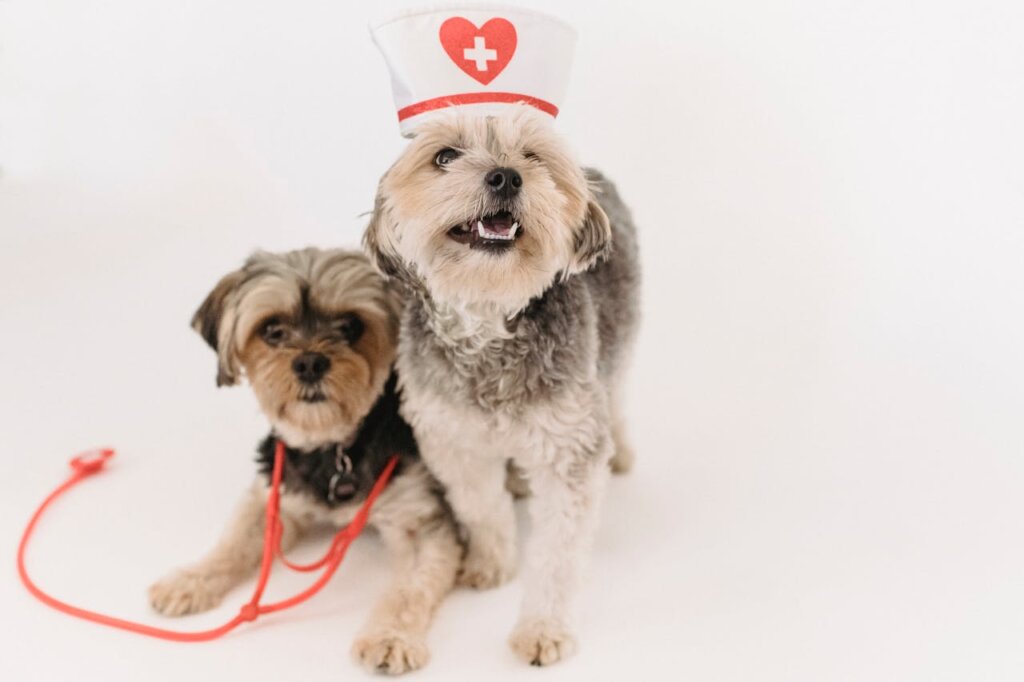How Long to Feed Dog Puppy Food:
Feeding your dog puppy food for the correct duration is important for its health and development during the early stages of its life. Understanding How Long to Feed Dog Puppy Food is essential for providing the nutrients necessary for its growth.
Determining the Right Time to Transition from Puppy Food to Adult Dog Food
Determining the right time to transition from puppy food to adult dog food involves considering the breed, size, and individual growth patterns of the puppy. Generally, smaller breeds can switch around nine months, while larger breeds might need puppy food until 12 to 18 months. Consulting with a veterinarian ensures a smooth and healthy transition.
Small to Medium Breeds
Small to medium-breed dogs generally require puppy food for about 12 months. This timeframe sufficiently supports their growth and developmental needs until they transition into adulthood. For these breeds, the switch to adult food can occur when they are close to reaching their expected adult weight and size.
Large to Giant Breeds
The duration extends significantly for large- to giant-breed dogs. Due to their prolonged growth period, it’s advisable to continue feeding them puppy food until they reach 18–24 months of age. Their larger bones and muscles require more time and nutrients to develop fully, making an extended period of puppy food beneficial for their overall health.
Making the shift to Adult Food
Dog food switching from puppy to adult should be a gradual process to avoid digestive discomfort. A slow transition over 7–10 days, starting with a mix of 75% puppy food and 25% adult food, gradually increasing the adult food proportion, is recommended. Monitoring your dog’s health and activity levels during this time can also provide insights into how well they are adapting to the change.
Understanding these guidelines and closely observing your dog’s development can facilitate a seamless shift from puppy to adult food, contributing to their long-term health and well-being. Do not forget to seek the counsel and recommendations of a veterinarian. Based on your dog’s individual needs, By following these guidelines and providing your puppy with the appropriate nutrition, you can help set them up for a healthy and happy life as they grow into adult dogs.
Keep observing their growth and monitoring their health, and make adjustments to their diet as needed throughout their life stages. With proper care, your furry friends will flourish and brighten your life for many years to come. So, continue providing them with the love, attention, and nutrition they deserve, and enjoy watching them grow into amazing adult dogs. Happy pup parenting!
A Balanced Diet for a Healthy Life
Aside from finding when to switch from puppy food to adult food, it’s also essential to provide your dog with a healthy diet for general health and well-being. A complete and balanced diet should include high-quality protein, healthy fats, carbohydrates, vitamins, minerals, and water.
Protein
For developing puppies to develop strong muscles and proteins, they are vital. Look for sources of high-quality protein, including chicken, turkey, fish, and eggs. Avoid plant-based proteins, as they may not provide the necessary amino acids for your dog’s diet.
Healthy Fats
Dogs need fats for energy and to aid in the absorption of nutrients. Seek out sources of omega-3 fatty acids, including fish oil, flaxseed oil, and chicken fat, in your dog’s food.
Glucose: Your dog needs carbohydrates for energy to go about its everyday work. Seek out complex carbohydrates like those found in sweet potatoes, whole grains, and legumes to ensure a steady release of energy throughout the day.
vitamins and Minerals
Minerals and vitamins are necessary for many body processes, including immune system functioning. To supply these essential nutrients, look for foods that include a range of fruits and vegetables.
Water
Water is essential for your dog’s general health and helps with digestion, nutrient absorption, and body temperature regulation. Make sure your dog can get fresh, clean water at all times.
By providing a balanced diet with the necessary nutrients, you can support your dog’s growth and development as it transitions from puppy food to adult food. Remember to always consult with a veterinarian for personalised recommendations and to monitor your dog’s health and well-being throughout all stages of life. With the right care and nutrition, your furry buddy will prosper and make you happy for many years to come. So, enjoy every moment with your growing puppy and cherish the memories as they become amazing adult dogs.
Why Adult Dog Food Is Important and How Long to Feed Dog Puppy Food

Transitioning to adult dog food is an important step in your dog’s life, signifying their move from puppyhood to adulthood. Dog food for adults is specially made to fulfil the nutritional needs of a fully grown dog, which differ significantly from those of a puppy. While puppy food is enriched with nutrients essential for growth and development, adult dog food provides a balanced diet that helps maintain optimal body weight, supports overall health, and prevents nutrition-related diseases.
Feeding adult dogs the correct formulation ensures they receive the appropriate levels of proteins, fats, and carbs, as well as the necessary minerals and vitamins to support their immune system, maintain healthy coats and skin, and sustain energy levels. It also addresses the dietary needs specific to their breed, size, and activity level, contributing to their longevity and quality of life.
Final Thoughts
Transitioning dog food from puppy to adult is a crucial step in your pup’s growth and development. By understanding the different nutritional needs of small to medium, large to giant breeds and providing a balanced diet tailored to your dog’s individual needs, you can help set them up for a long, happy, and healthy life as they become adults.
Do not forget to seek advice from a veterinarian for customised recommendations and to monitor your dog’s health and well-being throughout all stages of their life. With proper care, nutrition, and love, your furry buddy will prosper and make you happy for many years to come. So, enjoy every moment with your growing puppy and cherish the memories as they become amazing adult dogs.
What Distinguishes Dog Food for Puppies and Adults? Recognizing the variations between puppy and adult dog food is essential for pet owners aiming to provide the best care for their furry friends throughout different stages of their lives. Both types of food are formulated with specific nutritional contents to meet the varying needs of dogs as they grow from playful puppies into mature adults. Here’s a closer look at what sets these two important food stages apart:
Nutritional Content Tailored for Growth vs. Maintenance
- Puppy Food: Enriched with higher levels of protein, fat, and calories to fuel rapid growth and development. Essential nutrients like DHA for brain development and calcium for bone growth are more concentrated.
- Adult Dog Food: Designed to support healthy maintenance of body weight and overall health, with balanced levels of proteins, fats, and carbohydrates suited to an adult dog’s slower metabolism.
Energy Levels and Caloric Density
- Puppy Food: Puppy food has a higher caloric density to meet the energy demands of growing puppies, who are typically more active and playful.
- Adult dog food contains fewer calories to prevent obesity, considering adult dogs generally have a less active lifestyle than puppies.
Formulations for Specific Health Needs
- Puppy food focuses primarily on growth, considering all breeds and sizes. The aim is to support overall development efficiently.
- Adult Dog Food: Offers a variety of formulations targeting specific health needs, including weight management, sensitive stomachs, and joint health, catering to the diverse nutritional requirements of adult dogs.
By choosing the appropriate diet according to age and developmental stage, pet owners can significantly contribute to their dog’s health, longevity, and happiness. Transitioning at the right time from puppy to adult dog food ensures your pet receives optimal nutritional support throughout their life. Consulting with a veterinarian can help determine the best time and type of food to make the switch, ensuring your furry companion continues to thrive and bring joy to your life for many years to come. So, enjoy every moment with your growing puppy and cherish the memories as they become amazing adult dogs.
How to Wean Your Dog Off of Adult Food Switching to adult dog food, which is healthy and happy, is a vital step in ensuring your puppy grows up healthy and happy. This guide will provide you with a seamless, stress-free method for changing your puppy’s diet.
Step 1: When to Transition
- Timing is crucial. The best moment to begin transitioning your puppy to adult dog food varies by breed size. Small to medium breeds generally transition around 12 months, while large to giant breeds can transition between 18 and 24 months. See your veterinarian for the best guidance specific to your puppy.
Step 2: Choose the Right Adult Dog Food
- Selecting the Best Option: Look for high-quality adult dog food that fits your dog’s breed, size, and activity level. Consider any specific health needs your dog may have, such as sensitivity to certain ingredients or the need for joint support.
Step 3: The Transition Process
- Gradual Change: Start by mixing a small amount of adult food with your puppy’s current food. Over a few weeks, the percentage of adult food will be progressively raised while the rate of puppy food will decrease. A typical schedule might look like this:
- Day 1–3: 75% puppy food, 25% adult food
- Day 4–6: 50% puppy food, 50% adult food
- Day 7-9: 25% puppy food, 75% adult food
- Day 10: 100% adult food
Step 4: Monitoring Your Dog’s Health During Transition
- Watch for Signs of Discomfort: Monitor your dog’s digestion, appetite, and energy levels. Some dogs may experience minor digestive issues during the transition. If any symptoms persist, consult your veterinarian.
Step 5: Consult Your Veterinarian
- Professional Advice: Your vet can offer personalised advice and help monitor your dog’s health to ensure the transition is successful. They can also recommend specific types of adult dog food that would be best suited to your growing puppy’s needs.
By following these steps, you can help ensure an easy transition between dog food for puppies and adults, supporting your dog’s health and well-being as it grows. Remember, each dog is unique, so it’s important to adjust the process as needed for your pet.
Can a Puppy Eat Adult Dog Food? Understanding the Risks and Recommendations

Regarding providing food for your pet, understanding their dietary needs at each stage of their life is important for their health and development. Many pet owners could be unsure about its safety or whether a puppy should eat adult dog food. This section explores the aspects of feeding adult dog food to puppies and provides expert recommendations to ensure your pet’s well-being.
Potential Risks of Feeding Adult Food to Puppies
- Nutritional Imbalance: Feeding puppies and adult dogs food can result in nutritional imbalances, which may impede their growth and development. For instance, the lower protein and calorie content in adult food can lead to inadequate growth, while the lack of essential nutrients like DHA may affect brain and vision development.
- Long-Term Health Effects: Improper nutrition during the puppy stage can have lasting effects on a dog’s health, contributing to issues like poor bone density, joint problems, and an increased risk of chronic diseases.
Expert Recommendations
- Stick to Puppy Formulas: Vets and canine nutritionists strongly recommend feeding puppies a diet specifically designed for their growth phase. These formulas ensure that puppies receive the right balance of nutrients in the correct proportions to support their developmental needs.
- Transitioning at the Right Time: It is vital to transition your puppy to adult food at the appropriate age, which varies depending on the breed and size of the dog. This transition should be gradual and carefully managed to avoid digestive upset and ensure that the dog’s nutritional needs continue to be met as they grow.
Conclusion
While it may seem convenient to feed the same food to all dogs, regardless of their age, feeding adult dog food to a puppy is not recommended. Doing so can result in nutritional deficiencies and impact the puppy’s health and development. Always choose a high-quality puppy formula and consult with a veterinarian to determine the best time and method for transitioning your puppy to adult food. By providing the right diet at each stage of your dog’s life, you are laying the groundwork for a long and fulfilling future together.
FAQs
Can a one-year-old dog eat puppy food?
By the age of one year, most dogs are capable of switching from puppy to adult dog food, although large breeds may benefit from staying on puppy formulas a bit longer to support their extended growth phase.
At what age is a dog no longer a puppy?
A dog is generally considered no longer a puppy and enters adulthood around 1 to 2 years of age, with the exact timing dependent on the dog’s breed and size.
For what duration is a dog deemed a puppy?
A canine is generally considered a puppy until it reaches 1 to 2 years of age, with the precise age varying based on the dog’s breed and size.
Is it OK to give puppy food to adult dogs?
Feeding puppy food to an adult dog is not advisable. The high calorie and protein content of puppy food designed for growing puppies can lead to obesity and nutritional imbalances.
How many times a day should a puppy eat?
Puppies ought to eat three or four times a day. We are providing them with the essential nutrients they need for growth and development.

